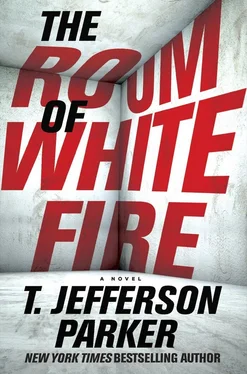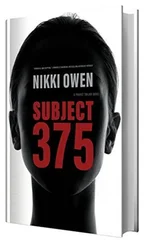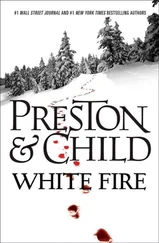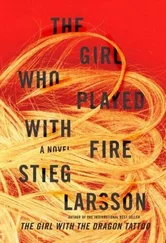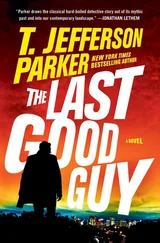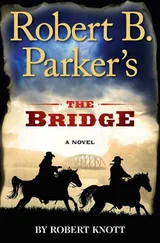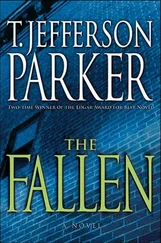“You’re quiet today, Mr. Ford. That CIA man got into your head?”
“He’s some of it.”
“Some of what?”
Where to start? I knew I could talk to Wesley as the bright young man he was without having to avoid the truth or change it or even lie. He wasn’t a part of this. I was growing irate with deceptions, my own and everybody else’s. They are intriguing, then tiring.
So I told him about Clay, and some of who Clay was and what he had done and how he’d escaped. How some people he worked with in the war did some bad things.
We ambled on. A kestrel circling high. A pair of band-tailed pigeons barreling along together.
“Clay has those bad things on video,” I said. “Highly classified. They — the people he worked for — will go to great lengths to keep him from showing it.”
“They? Like that CIA guy?”
“He’s one. Others are military. Others are private contractors. None of them know where Clay is. But I do.”
“What if they find out, too?”
“They’ll lock him up somewhere, keep him drugged and quiet. To the government, Clay is expendable. We might never hear of him again. But the most important thing for them is to destroy the video.”
Wesley stopped and turned around. “They would really do that to him?”
“They see it as their duty. They’d say if they didn’t, national security would be threatened.”
“Would it be?” asked Wesley.
I thought that question through again, for probably the thousandth time since I’d seen Clay’s video. Same answer every time.
“No,” I said. “But if the public saw the video, the national conscience would get roughed up. Badly.”
“National conscience? Like, how America looks at itself?”
“Exactly that.”
“Then these people must have done some pretty bad things,” said Wesley.
“Very bad, Wes. Ugly and unnecessary. The country should know, because America is better than that.”
“But if Clay shows the video before they get to him, what happens then?”
“They’ll probably charge him with treason,” I said. “That’s prison time.”
“Even though he’s crazy?”
“That would be part of any trial.”
We continued up the path in silence. Wesley, a couple of steps ahead of me, stopped and lifted his field glass to a very large sycamore tree growing in a low swale. Through my binoculars I saw the goldfinches flitting black and yellow amid the big green leaves. Behind the green the clouds piled in, blue-gray and fast.
“So Clay can’t win, Mr. Ford. If he shows the video, they put him in prison, and if he doesn’t they take it and put him back in the mental hospital. Or worse, even. Can you prevent any of that?”
“Maybe.”
“You’ve got a plan?”
“Yes.”
“Wow. Incredible.” We walked on, Wesley a step ahead of me, scanning the trees. “Anything I can do to help?”
“There is. Friday, day after tomorrow, I’ll need you to shoot some very important video with that nice camera of yours. We’ll edit it in with some existing footage, taken by Clay.”
“I’m slow with the video editing, Mr. Ford. Just learning.”
“You’ll have help.”
Wesley stopped and looked back, smiling. “Okay, then. You got it. Will Clay actually be there?”
“With luck.”
We forged ahead, moving slowly and quietly. Saw a female oriole in an old oak and a mockingbird jeering at us from a toyon. I looked up at a yellow Piper Cub descending toward Fallbrook Airpark. “How are your black eyes healing up, Wes?”
“Good. Kinda green now instead of black.” He stopped and turned and took off his dark glasses. The sockets were the soft green of bread mold but the eyeballs were clearing of blood. Hard to believe that one of those strong young eyes would have to be taken. And maybe another. So that Wesley Gunn’s life could continue. Just like it was hard to believe that Clay Hickman could either tell the truth and be considered a traitor, or conceal the truth and be considered insane.
“What a dumb thing to do down in Mexico,” said Wesley, slipping his sunglasses back on. “I think those margaritas messed up my head.”
Back home I started moving my other players toward the stage where they would perform on Friday. Good Friday.
The stage would be here, Rancho de los Robles — Ranch of the Oaks. Hide in plain sight. For one hour. One hour was what I thought I needed.
Burt Short agreed to help keep a possibly armed and very unpredictable Clay Hickman under control. If my ruse worked properly, we would have an hour without either Joe Bodart’s Special Activities Division or Briggs Spencer’s thugs, led by Alec DeMaris, bent on silencing Clay Hickman by whatever means necessary.
Lindsey Rakes would do some driving for me, then edit Wesley’s video. She knew her way around video and audio from her Creech sensor ball days. Easy, she said. Her laptop was up to the task. And she was willing to help Burt handle Clay, if he needed help.
Dick and Liz would get out of Dodge in my truck, only so that I could sneak back into Dodge undetected. They would have to get along with each other for enough time to complete their tasks. They groused, then agreed.
Sitting in the eternal twilight of my heavily draped office, I called the Hickmans on a new burner phone. As they had said earlier, Rex and Patricia wanted a shot at convincing their son to come back home. Wanted it badly. They had said nothing yet to Briggs Spencer, but had talked at length with Paige Hulet, whom they trusted more than her boss. The Hickmans would fly down in their private propjet tomorrow. At my suggestion, they would bring two licensed security men with them the following day, Friday, when they would meet with their son.
Still on the burner, I talked again with Paige Hulet. She strongly wanted her star patient to try living at home with his mother and father, under the care of a psychiatrist — possibly herself. I could hear the excitement in her voice. She had already talked to the Hickmans about this, and she had agreed to handle the medical aspects of the transfer.
“I’d like you to be here when Clay arrives,” I said. “He trusts you. If he doesn’t like what he sees, you might be able to calm him down.”
“Thank you” was all she said.
The only missing part was Clay Hickman.
I made the call on David Wills’s phone at eight thirty-five that night and left a message:
“Clay? This is David, from Nell Flanagan’s office. I have some very good news for you. Nell wants to do the segment. She is very excited about it. She wants to tape the day after tomorrow at noon, Friday, on location in north San Diego County. It will be you, Nell, Briggs Spencer, and Dr. Paige Hulet. Nell thought having your psychiatrist present would be important and fascinating. And, of course, I’ll be there. When you call back I can tell you where to meet us, and what clothing you should wear, and give you some basic dos and don’ts about TV, okay? If you need a haircut, be a good time to get one. Absolutely no guns — that’s a deal breaker and she’ll have a bodyguard, who will search you. So be cool. Okay to bring the girl. Call me soon.”
I was guilty of duplicity. Which felt close to betrayal. But betrayal for a good cause, right? Was it worth noting that betrayal for a good cause is the first small step on so many catastrophic journeys?
But this was my choice, assigned by fate or God or chance. I wasn’t sure that it mattered which. The real question was: Could we do the right thing for Clay? Would he let us?
Wills’s phone buzzed.
Clay’s voice wavered with excitement. “This is excellent. And Dr. Spencer has agreed to be there?”
“He’s very eager to promote Hard Truth .”
Читать дальше
